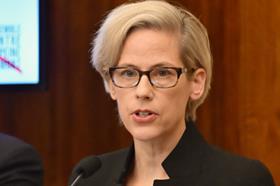The government faces a constitutional headache in getting its emergency Rwanda bill through parliament after UN experts declared that the proposed legislation threatens to undermine judicial independence. Meanwhile, the Law Society warned today that there is no evidence Rwanda is yet a safe country for asylum seekers.
The Safety of Rwanda (Asylum and Immigration) Bill, which started in the House of Commons, enters report stage in the House of Lords today.
On Friday, UN experts, including Margaret Satterthwaite, special rapporteur on the independence of judges and lawyers, said provisions in the bill ‘constitute an interference with the independence of the judiciary and a violation of international law’.

The bill requires decision-makers to ‘conclusively treat the Republic of Rwanda as a safe country’. However, the UN’s experts are concerned that the bill overrides the power of the judiciary to rule independently on the facts of a case before it and apply the law.
The UN’s experts said: ‘Provisions in the draft law would unduly limit judicial independence by requiring judges to treat Rwanda as a safe third country now and in the future, regardless of any evidence to the contrary before them.’
The proposed legislation would prevent courts from applying interim measures ordered by the European Court of Human Rights. The UN’s experts said interim measures ‘are particularly important for the protection of human rights in urgent cases where there is a real risk of irreparable harm’.
Meanwhile, the Law Society said the bill, as it currently stands, is constitutionally improper and bars access to justice.
Society president Nick Emmerson said: ‘The bill would state that parliament judges Rwanda to be a safe country immediately and forever. But there is no evidence of this. The UK government says that the existence of the December 2023 Rwanda Treaty is sufficient – but we are deeply concerned that the government does not know whether the safeguards in the treaty are yet operational, or even when they will be. These questions are imperative for parliament to be able to consider whether Rwanda is a safe country and conclusively deem it to be one in law.’











